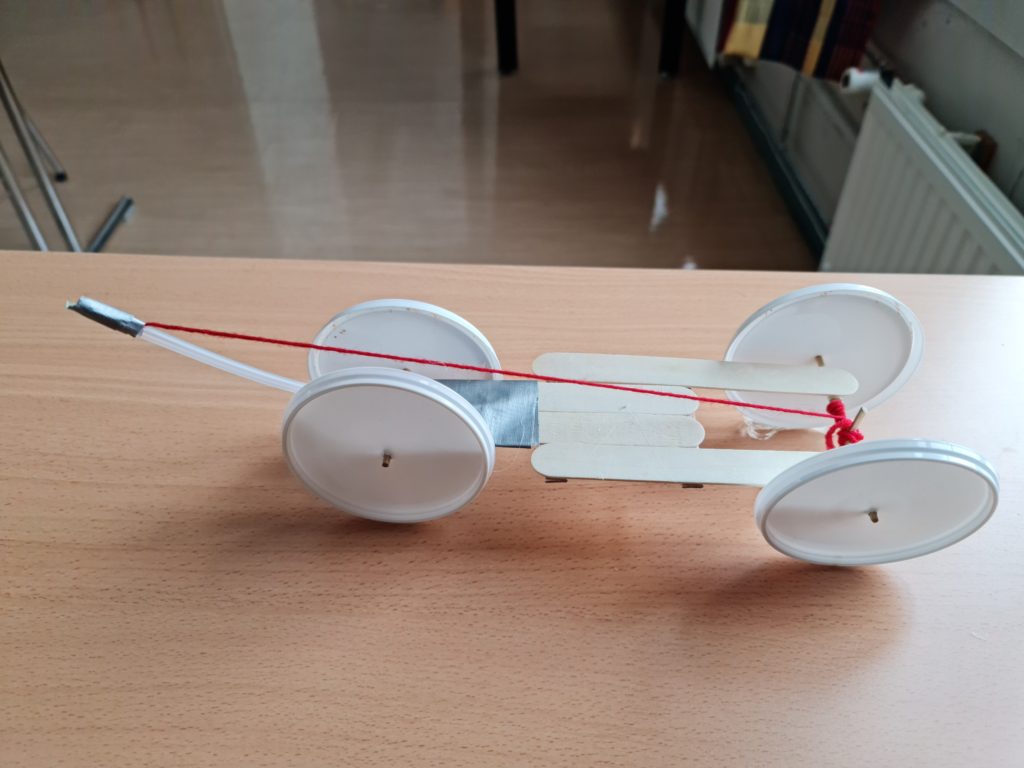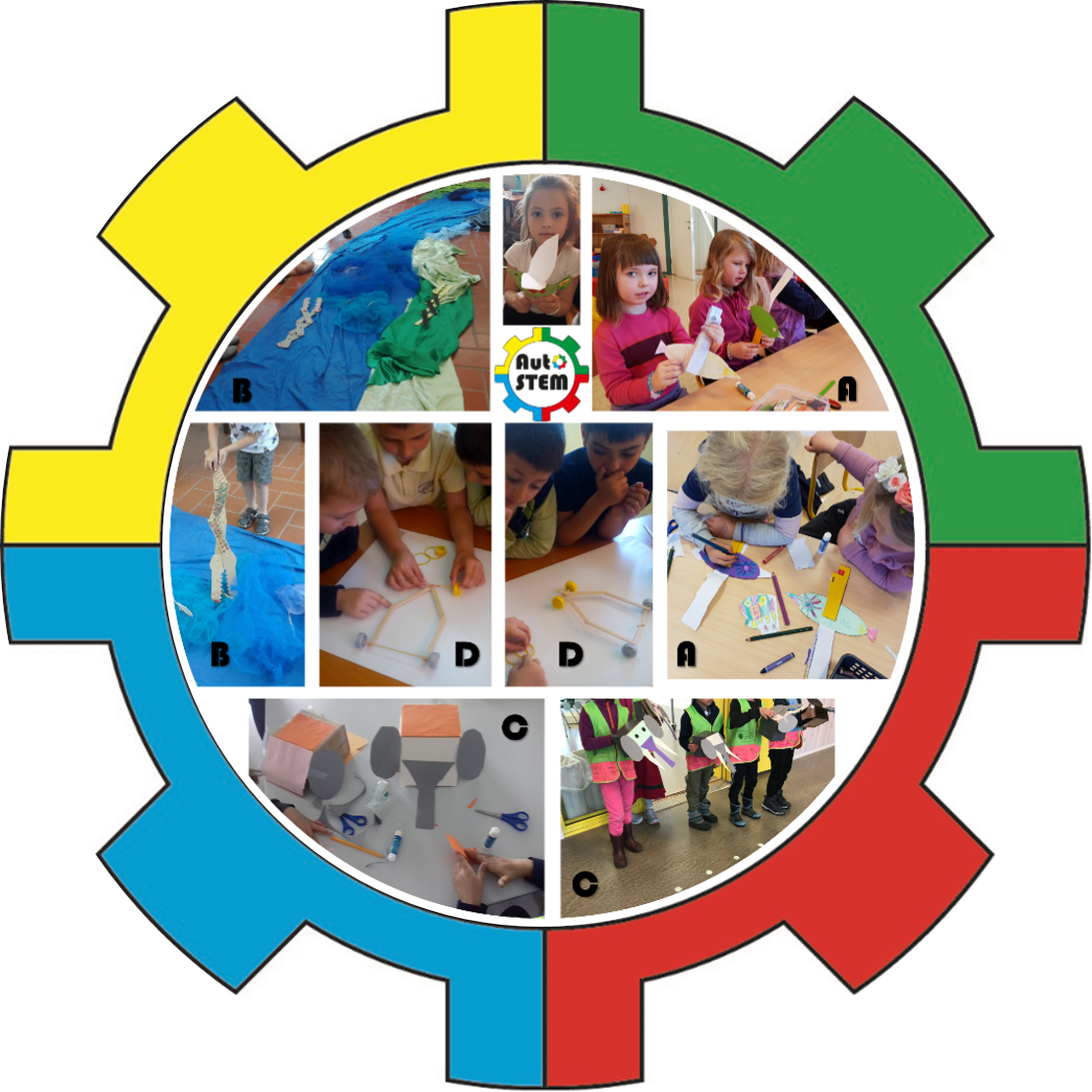Pedagogical guidelines and construction instructions
The Eco-car 2, allows teachers to speak about aspects of mathematics and physics.
- Mathematics
- Counting: wooden sticks, straws (will be divided into three parts), bottle tops, skewers
- Measuring length: Direct comparison between the width of the four sticks and the lengths of sticks, straws and skewers. Older children might use a ruler; younger children can use the width of a lollipop stick as a unit. Direct comparison to make a hole in the bottle top that is ‘just’ big enough for the wooden skewer to pass through and still be tight.
- Fractions: ½ the width, ½ the length
- Locating: use spatial concepts like rear, front, under, top, bottom, centre (find the centre of a circle), around, rotation (the motion of the axles and the wheels), translation (the forward motion of the car)
- Physics
- Energy: different types of energy:
- work (The child does work by applying a force to the straw.)
- elastic energy: potential energy due to the deformation of the straw
- rotational kinetic energy (the rotation of the wheels)
- translational kinetic energy (the forward motion of the car)
- thermal energy (heat)
- Force: The child uses force to deform the straw.
- Rolling friction: the force resisting the motion when the wheels roll on a surface
- Conservation of energy: Energy can be converted but not destroyed. The child’s work is converted into elastic energy (of the rubber band), elastic energy into rotational energy (of the axles and wheels), rotational energy into translational energy (of the car), translational energy into thermal energy (the wheels and the ground become slightly warmer through friction)
- Centre of mass: In order to find the centre of a wheel, the children can balance the bottle top on the tip of a skewer.
- Energy: different types of energy:
Instructions
Eco Carro 2 – – Download the Step by step guide in Portuguese here
Еко кола 2 – инструкции за построяване Bulgarian
Video tutorial on how to build the Eco-car 2 see below


